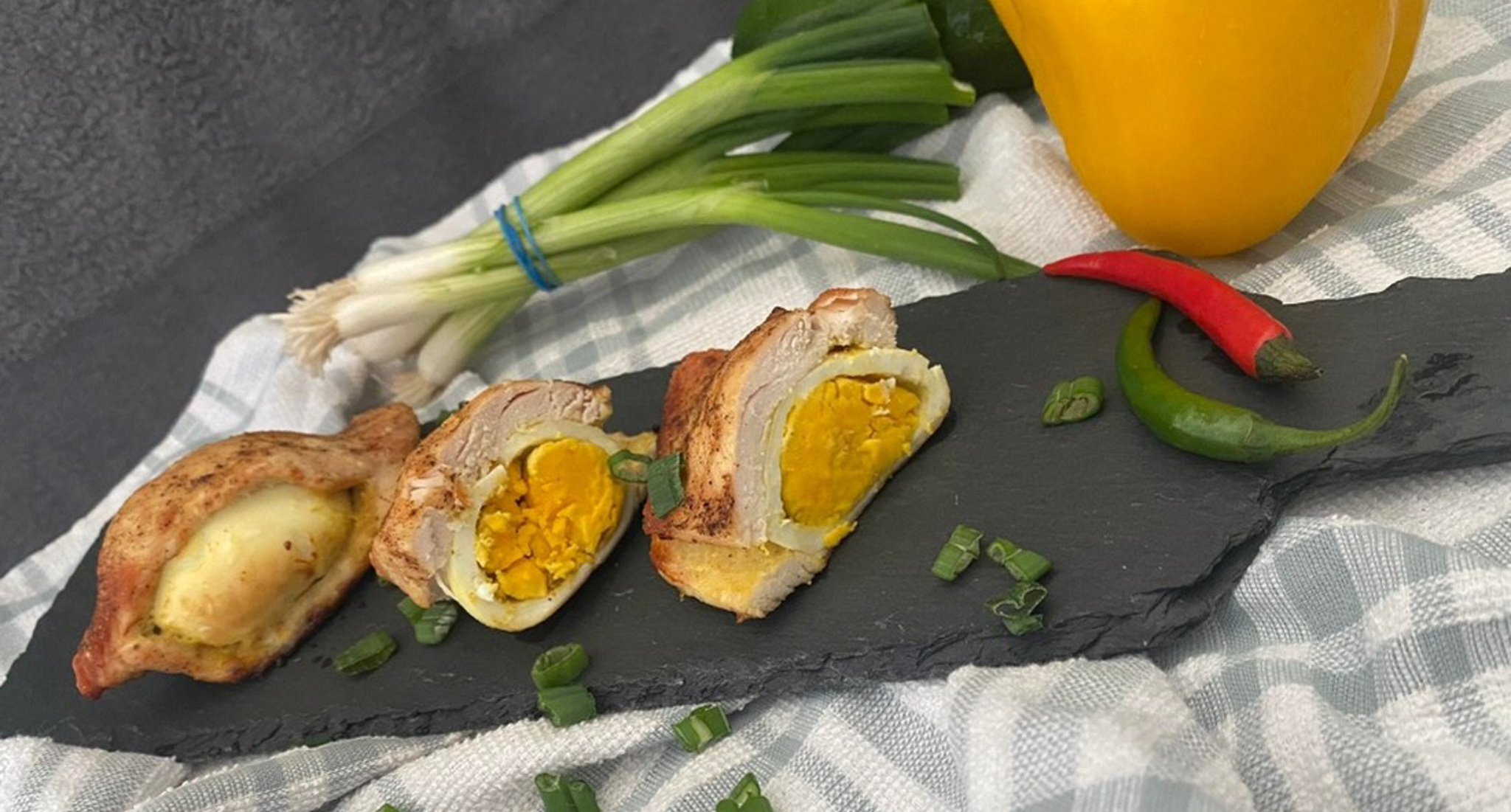This recipe is an alternative to the traditional ‘Schab ze sliwka’, pork stuffed with plum. It has fewer calories and more protein making it an excellent option for Easter. It is filled with tastes and different textures. This recipe can be served hot or consumed cold, cut into slices on bread.
Serves: 1
Dietary: nut-free, milk free
Contains; gluten (mustard), eggs, mustard, sulphites (mustard)
Preparation time: 10 mins
Cooking time: 55 mins
INGREDIENTS
Small chicken breast (Approx.100 g)
1 large egg
1 tsp mustard
1 slice of onion
Pepper to season
METHOD
- Preheat the oven to 200oC/180oC Fan/400oF/Gas Mark 6.
- Fill a saucepan with cold water and place the egg in the water, ensuring it is fully covered.
- Bring the water to a boil and cook for 10 minutes to ensure it is well done.
- Drain the hot water and pour cold water over the egg to let it cool.
- Peel the egg from its shell.
- Wash and pat dry a chicken breast.
- Cut into the chicken breast to create a pocket.
- Cut a slice of an onion.
- Add a teaspoon of mustard and the onion slice into the pocket and put the boiled egg inside.
- Season chicken breast with pepper.
- Place in the oven for 40 minutes.
- Take out and consume hot or cold on sliced bread.
This recipe has been donated by Sylwia Szkup, a student nutritionist at ATU, Galway.
NUTRITION INFORMATION
Per serving: One small stuffed chicken breast
Total calories: 217 kcal
Fat: 7.6 g
of which saturates: 1.9 g
Carbohydrate: 2.5 g
of which sugars: 2.0 g
Fibre: 0.5 g
Protein: 34 g
Salt: 1.0 g
NUTRITION FACTS
- Excellent source of protein needed for growth in muscle mass and maintenance of bones.
- Good source of Vitamin D, which contributes to the maintenance of our bones, vitamin B6, which contributes to the normal functioning of the nervous system; and vitamin B12, which contributes to the reduction of tiredness and fatigue.
VARIATIONS
- If allergic to wheat, skip the mustard.
- You can cook this in the air fryer for 10 – 15 minutes, which makes it quicker.
Checked by Kathy Lewis, Registered Nutritionist
© 2023 The Caroline Walker Trust

